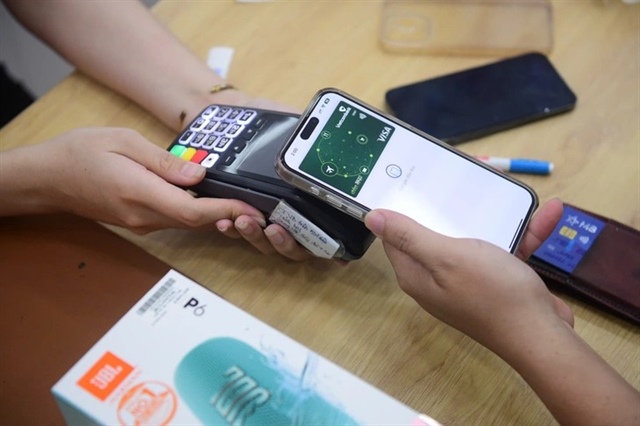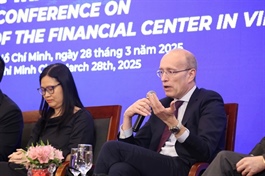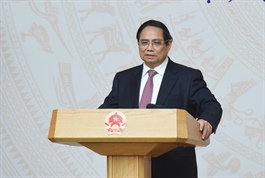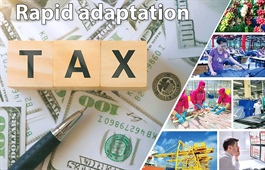AI triggers great transformation in Vietnam’s banking,finance sector
AI triggers great transformation in Vietnam’s banking,finance sector
The integration of artificial intelligence (AI) into digital transformation initiatives is becoming a key driver enabling Vietnamese banks to achieve breakthroughs in the digital era.

Vietnam has recorded over 2.2 million individual payment accounts, totaling nearly 17 billion cashless transactions. Photo: Quang Dinh / Tuoi Tre |
This observation was highlighted by Nguyen Hoang Minh, head of the Ho Chi Minh City Representative Office of the Vietnam Banks Association, at a seminar held on April 3-4 on enhancing the capabilities of the financial sector through AI.
According to Minh, boosting competitiveness -- particularly in banking and finance, a sector constantly demanding innovation and adaptability -- requires the implementation of AI and the development of advanced technological infrastructure.
Such efforts lead to significant improvements, from optimizing operational processes and enhancing customer experiences to better risk management, data analysis, and the creation of flexible financial models.
"We can clearly see these impacts through the emergence of digital banks, AI-powered payment systems, automation of business processes, biometric authentication technologies for transaction validation, and virtual financial assistants that personalize the customer experience," Minh stated.
Minh also emphasized that AI application not only enhances business performance significantly but also plays a critical role in ensuring transparency, regulatory compliance, and comprehensive risk management, effectively curbing financial fraud.
Advanced AI solutions showcased
During the seminar, experts from GreenNode (the AI Cloud unit of VNG), VNG Cloud, and TrueID presented advanced AI solutions designed specifically to upgrade operations within the banking, financial services, and insurance sectors. These solutions aim to optimize customer experiences and establish competitive advantages.
Meanwhile, Le Hong Minh, chairman of VNG, shared his insights: "Given the expertise of my colleagues here in the financial and technology sectors, I wouldn't dare offer detailed instructions. However, I’d like to suggest several principles VNG currently adopts.
"It's essential to take action -- even in small-scale projects -- but across multiple departments. This approach accelerates learning and execution. We convince management and the board to invest without immediately expecting a return on investment."
According to Minh, demonstrating immediate financial results is challenging, especially with advanced technologies like AI.
"We prefer small-scale investments, step-by-step implementation, but applied broadly across departments. VNG doesn't aim to create a 'game-changing' project like OpenAI did with Microsoft or initiatives by Elon Musk. However, continuous application, result tracking, and incremental learning remain our strategy," he explained.
Booming cashless transactions
According to the Vietnam Banks Association, as of the end of 2024, Vietnam had more than 2.2 million individual payment accounts, processing nearly 17 billion cashless transactions. Many banks have already achieved rates exceeding 95 percent for digitally processed transactions.
Moreover, the adoption of advanced authentication methods, such as chip-based citizen ID cards and especially biometric authentication for banking transactions, has significantly enhanced security and customer convenience.
Currently, over 38 million accounts employ biometric authentication, and 43.9 million customer profiles have been verified and cleaned by Vietnam’s National Credit Information Center.
Efforts to digitize civil status and land data are accelerating, with civil status digitization targeted for completion by March 2025 and land data by June 2025.
- 10:17 09/04/2025
























